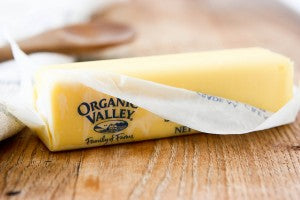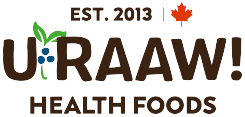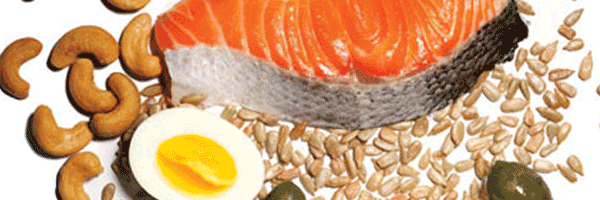Regardless of your health and fitness goals, sufficient intake of dietary fat is crucial to your long term well being. Fat plays many important roles in the body including hormone regulation, cell function, metabolism, and aiding the absorption of the vitamins A, D, E and K.
Many people severely restrict fat intake when on a weight loss diet, and this may be counter productive. Too little fat may actually make it more challenging to lose weight!
Not all fats are considered equal from a health perspective however, so it’s important that you choose the best sources which will be outlined below.
Healthy Plant Oils
Oils are a great source of fat to be cooking with as they will add moisture and flavour to the foods you’re preparing. They also work great as a salad dressing and will help to boost the absorption of many of the nutrients that are found in the ingredients you add to the salad.
When it comes to the top oils to be serving up, choose extra virgin olive, avocado, hemp, and coconut oil. These are the ones that will offer the greatest health benefits based on their fat profile, and antioxidant levels.
If you are cooking at high heat, it’s best to go with avocado or Organic Traditions coconut oil, as those are more stable sources at high temperatures.
Nuts, Seeds, And Natural Nut Butter
The next sources of healthy fats to have in your diet protocol are nuts, seeds, and natural nut butter. These are great for adding to snacks, baking, over salads, smeared over a piece of fruit, or however else you want to take them in.
Make sure that you do measure out the quantity that you’re eating however as they will add up quickly.
Choose natural nut butters to avoid excess added sugar found in the butter and always choose unsalted nuts in their most natural state.
Almost all nut and seed varieties will be a good choice to add to your diet, but you should place a special focus on those which contain healthy ratios of omega-3 fatty acids to omega-6 fatty acid. Examples include chia seeds, flax seeds, and hemp hearts.
Consider soaking nuts to maximize their nutritional value.
Coconut Products
Coconut is one of the best sources of fat to be consuming and one that often goes overlooked in many people’s diets. While it is a saturated variety of fat, it’s a unique one in that it’s a medium chain triglyceride.
The structure of this fat makes it react differently in your body and it’ll actually be available for use as an energy source very quickly, unlike other fats you’re consuming.
Coconut fat is also a heart-healthy fat, will help to combat against diabetes, and improves your skin and hair health as well.
Choose coconut milk, whole coconut, coconut butter, coconut oil, or dried unsweetened coconut. There are plenty of ways to get this one in, so no excuse for passing it up.
Avocados
 The next source of fat that you’ll want to be considering for your diet is avocados. Avocados are actually a fruit, but one of the few fruits to have more fat calories than anything else.
The next source of fat that you’ll want to be considering for your diet is avocados. Avocados are actually a fruit, but one of the few fruits to have more fat calories than anything else.
They contain high levels of heart-healthy monounsaturated fats which have been shown to help regulate cholesterol levels, and also increase our metabolic rate.
Avocados are also loaded with vitamin E, offer a very smooth and creamy taste, and can work well with a number of different dishes.
Fatty Fish
The omega-3 fatty acids are the most vital source of fat to be consuming on a daily basis because they cannot be produced in the body and offer such a wide array of health benefits.
They’ll help out with everything from combating depression to preventing cancer and diabetes to promoting a leaner body composition.
Essentially, they are the fat to be eating.
Fatty varieties of fish are a terrific source of omega fats, so start there with your intake. If you aren’t a fan of eating fish whole, then it would be a smart move to add fish oil capsules to your diet instead as these will help to boost your intake.
Here is a list of the top 5 fish with the highest levels of omega-3 fatty acids:
- Mackerel
- Lake Trout
- Herring
- Bluefin Tuna
- Salmon
Organic Butter from Grass Fed Cows
All butters are not created equally. Compared to conventional butter, organic butter from grass fed cows contains significantly higher levels of vitamins A and K, CLA, and much healthier ratios of omega-3 to omega-6 fatty acids. Simply put, if you decide to make butter a staple of your diet, this is the butter to choose.
grass fed cows contains significantly higher levels of vitamins A and K, CLA, and much healthier ratios of omega-3 to omega-6 fatty acids. Simply put, if you decide to make butter a staple of your diet, this is the butter to choose.
Butter has gotten a bad wrap until recently, and if you are still not convinced that it’s a heart healthy choice when it comes to dietary fats, we recommend reading this article from The Weston A. Price Foundation.
So there you have the primary sources of healthy fats that you want to be making sure you’re eating. Always remember that you still must measure out how much fat you are consuming as it is very calorie dense and will add up quickly. As long as you ensure it fits into your total daily caloric intake requirements, you’ll have no problem incorporating it in to your diet plan.
What are your favourite sources of healthy fats? Please let us know by leaving a comment below!

